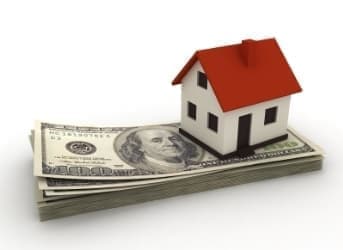Here’s some new impetus for those sitting on the fence over household energy efficiency: the risk of mortgage default is one-third lower for people with energy efficient homes, according to a recent study.
The study, released in March by the University of North Carolina’s Center for Community Capital, claims that energy efficiency can be the difference between mortgage repayment and foreclosure.
The Home Energy Efficiency and Mortgage Risks study examined 71,000 home loans from 38 states and the District of Columbia, with loans taken out from 2002 to 2012. The results showed that the chances of mortgage default were one-third lower for those with energy efficient homes.
Specifically, homes with lower Home Energy Rating System (HERS) Index Scores overall showed a lower mortgage default risk, while Energy Star-labeled homes showed a 32% lower mortgage default risk.
The HERS index is the brainchild of the Residential Energy Services Network (RESNET), which is a nationally recognized system for inspecting, testing and calculating a home’s energy performance. The intention is to give buyers a better idea of a home’s energy efficiency before purchasing.
Related article: In Artificial Markets, Invest in Energy - Life Requires Energy
It might sound like a bit of a stretch, but it’s as simple as saving on utility bills to make mortgage payments.
While the theory is indeed quite simple, the study is being lauded as the first real academic study to provide a link between mortgages and energy efficiency, so it’s being taken rather seriously. Other academics like the evidence.
It’s all about solvency, after all. Energy efficient homes can save up to $250 per month—an amount that for many households could be the difference between making the next mortgage payment.
According to a report earlier this year by the National Association of Home Builders, 90% of home buyers would choose the long-term saving of an energy efficient household despite the 3% (or so) additional cost they would accrue up front in buying such a home.
US households spent about $230 billion annually on energy—and that’s not counting transportation. Some analysis suggests that residential energy efficiency—within the realm of the existing possibilities—could save over $40 billion annually.
Related article: Clean Economy Doesn’t Mean Cleaner World
RESNET Executive Director Steve Baden says the report will be a “real game-changer”.
“The finding that the lower the HERS Score, the lower the mortgage risk should increase consumer, builder, lender, real estate agent and appraiser confidence in the HERS Index Score. In light of these findings, RESNET calls on the mortgage industry to rationalize the underwriting process to take in consideration energy savings in the mortgage loan,” Baden noted on the sidelines of a conference in Washington, DC at the time of the report’s release.
And here’s where it could get more interesting: Baden and others think the report’s findings will lead to revolution of sorts for home-buying. To that end, it urges lenders to lower risk rates for energy efficient homes and federal loan programs to employ more flexibility in such cases.
By. Charles Kennedy of Oilprice.com


















A few years ago a study showed that having a glass of wine with dinner prevented heart disease. That study did not take into account that the meals that people have with wine tend to be healthier. No one has wine with fast food.
It seems to me that this energy efficiency / mortgage default risks study has similar errors to the wine drinking study.
A person that covers the cracks in their doors and windows with tape might be more likely to default on their mortgage than some one that can afford new windows completely independent of energy bills.
Perhaps you could study it more and find the actual factors at work here. Or maybe you would find that it is too difficult to determine the actual causes. Reporting on facts gathered through honest, unbiased thorough study would be a real service to society. This seems more like a way to exaggerate and dramatize a loose connection and collect a paycheck. Sorry if that is not the case.